Online Learning Portal
Online Learning Portal

Hybrid Classes
We provide offline, online and recorded lectures in the same amount.

Personalised Mentoring
Every aspirant is unique and the mentoring is customised according to the strengths and weaknesses of the aspirant

Topicwise Mindmaps
In every Lecture. Director Sir will provide conceptual understanding with around 800 Mindmaps.

Quality Content
We provide you the best and Comprehensive content which comes directly or indirectly in UPSC Exam.
IAS Foundation 2024
Optional Classes
Current Affairs
Test Series
Others Links
UPSC Prelims Classes 2024
Prelims
Mains Classes 2024
Mains & Interview
Mains Material
Test Series
Free Study Material

DAILY NEWS ANALYSIS
GS-III: RBI issues final norms for regulatory box News The Reserve Bank of India (RBI) has issued the final framework for the regulatory sandbox in order to enable innovations in financial technology. Regulatory Sandbox A regulatory sandbox usually refers to live testing of new products or services in a controlled regulatory environment for which regulators may permit certain regulatory relaxations for the limited purpose of the testing. The objective of the sandbox is to foster
GS-III: RBI Surplus Context The RBI Board approved a surplus transfer of Rs 1,76,051 crore to the central government. How does a central bank like the RBI make profits? The RBI is a “full service” central bank— not only is it mandated to keep inflation or prices in check, it is also supposed to manage the borrowings of the Government of India and of state governments; supervise or regulate banks and non-banking finance companies, and manage the currency and p
GS-III: Spelling out the government’s RBI windfall News The transfer of Reserve Bank Of India surplus to the government in a routine manner. The government was, it must be noted, acting on the recommendations of a committee chaired by former RBI governor Bimal Jalan, on capital transfer. Some economists have welcomed the move as it will help the government counter the shortfall in revenue and tax collection. Since inflationary pressure is low, economists believe that th
GS-III: Mergers of Bank Context The Centre announced a mega amalgamation plan, the third in a row, that merged ten public sector banks into four larger entities, this series of mergers the number of state-owned banks is down to 12 from 27. About Merger: There are four new sets of mergers Punjab National Bank, Oriental Bank of Commerce and United Bank of India to merge to form the country’s second-largest lender. Canara Bank and Syndicate Bank to amalgamate; Union B
GS-III: Privatizing public sector banks News Former RBI governor D. Subbarao raised the question of whether India needs public sector banks at all in this day and age. Reasons for privatization The country’s financial sector is now wide enough and deep enough to take care of financial intermediation without state support. Even after the bank nationalization of 1969, the state dominance of the sector has kept competition levels low. There was unnecessary micro-manage
GS-III: RBI report on Loan Waivers' impact News Recently the RBI shared the report of an Internal Working Group (IWG), which was set up in February to look at, among other things, the impact of farm loan waivers on state finances. Since 2014-15, many state governments have announced farm loan waivers. Highlights of the report The report has shown how to farm loan waivers dented state finances and urged governments both central and state to avoid resorting to farming loan w
GS-III: Making the grand India PSB mergers work. News The initial enthusiasm of market analysts to the bank merger announcement is giving way to wariness and scepticism. The procedure of Bank Merger An application for merger is submitted by the concerned banks to the Central Registrar of Cooperative Societies (CRCS). A copy of the application is also sent to Reserve Bank of India (RBI) along with valuation report and information relevant for consideration of the scheme of me
GS-III: Trust deficit News It has been a nightmare of a week for thousands of customers of the Punjab and Maharashtra Co-operative Bank (PMC), who were told last Tuesday by the RBI that no more than Rs.1,000 could be withdrawn from their accounts for a period of 6 months. What are the implications of the decision? The PMC bank is a leading urban cooperative bank headquartered in Mumbai. The decision sent shock waves among thousands of its depositors. Panic-stricken customers r
A welcome move, but it’s unlikely to spur demand News With the 25 basis points (bps) rate cut, RBI returned to the conventional wisdom of a rate change in multiples of 25bps. RBI statement MPC decided to continue with an accommodative stance as long as it is necessary to revive growth while ensuring that inflation remains within the target. RBI’s decision to increase the household income limit for borrowers of NBFCs and MFIs is welcome. It will enhance cred
GS-III: The current crisis at PMC Bank serves the country a warning. News The crisis unfolding at PMC Bank is the tip of the iceberg of larger, unresolved problems in India’s banking sector. Roots of the cause: The roots of the crisis in the banking sector go back to the unresolved problem of non-performing assets (NPAs). These are magnified in the case of cooperative banks due to lax governance and a dicey business model. Other problems with the cooper
GS-II: States at Centre Context In recent times, economic discussion in India has focused largely on the stress on central government finances. But state government finances are also facing headwinds. State of states’ finance: States increasingly account for a larger share in general government spending. An RBI report on state finances notes that over the past two years, the overall size of state budgets has reduced. This may have “inadvertently deepened” the
GS-III: What PMC means? News In at least three of the major financial sector scams in the last couple of months in India, featuring Punjab National Bank, IL&FS, Punjab and Maharashtra Cooperative Bank, apart from poor governance and fraudulent practices, a common thread has been a supervisory failure. Supervision The country’s leading financial sector regulator, RBI, has been responding only after the event. As in IL&FS, in the PMC case too, there appears to b
Global Microscope on Financial Inclusion Report Syllabus subtopic: Indian Economy and issues relating to planning, mobilization of resources, growth, development and employment. News: The Economist Intelligence Unit has released the 2019 edition of the Global Microscope on Financial Inclusion report. Prelims focus: Key findings, about the report, about EIU Mains focus: Challenges for India and ways to address them. The 2019 edition of the Global Micros
NBFC Liquidity Framework Syllabus subtopic: Effects of liberalization on the economy, changes in industrial policy and their effects on industrial growth. News: The Reserve Bank of India (RBI) has introduced a ‘liquidity management framework’ for Non-Banking Financial Companies (NBFCs). The new guidelines are applicable to all non-deposit-taking NBFCs with an asset size of 100 crore and above, systemically important Core Investment Companies a
PMC Bank crisis Syllabus subtopic: Indian Economy and issues relating to planning, mobilization of resources, growth, development and employment. News: With the failure of the Punjab and Maharashtra Co-operative (PMC) Bank reigniting the debate on the low level of insurance for deposits held by customers in banks in India, the central government now plans to raise the cover. Legislation in this regard is likely in the ongoing Winter Session of Parliament
RBI push to de-risk banking sector chokes the flow of funds to large PSUs Syllabus subtopic: Indian Economy and issues relating to planning, mobilization of resources, growth, development and employment. News: Lenders seek exemption from RBI to relax the large exposure framework requirements for state-run firms Prelims and Mains focus: on the recent disinvestments made by the govt and its impact on the credit flow and growth What is the issue? A Reserve Bank of India (RBI) reg
Bad loans under Mudra Kishore jump 107% in six months Syllabus subtopic: Indian Economy and issues relating to planning, mobilization of resources, growth, development and employment. News: The number and value of bad loan accounts in the Kishore category of the Pradhan Mantri Mudra Yojana (PMMY) for a dozen public sector banks including State Bank of India, Canara Bank and Bank of Baroda, have jumped 107 per cent and 71 per cent, respectively, as on September 30, 2019 compared with March
RBI lays down guidelines for payments banks’ SFB licence Syllabus subtopic: Indian Economy and issues relating to planning, mobilization of resources, growth, development and employment. News: Payments banks willing to convert themselves into small finance banks (SFBs) can apply for such a licence only after five years of operations, the Reserve Bank of India (RBI) said in the final guidelines on on-tap licensing for SFBs. Prelims and Mains focus: About Payment
In a surprise, RBI keeps interest rates unchanged Syllabus subtopic: Indian Economy and issues relating to planning, mobilization of resources, growth, development and employment. News: The RBI’s Monetary Policy Committee (MPC) unanimously decided to keep the key policy rate unchanged for the first time in 2019, as it worried about the rising inflation and felt that more time was needed for the impact of past rate cuts and more clarity on the fiscal policy and price fronts.
The link between NPAs and frauds at govt-run banks Syllabus subtopic: Indian Economy and issues relating to planning, mobilization of resources, growth, development and employment. Prelims and Mains focus: Why rising incidence of bank frauds is a cause of concern for RBI, the Centre and people with savings and deposits in these banks. News: The finance minister informed Parliament last month that state-run banks reported frauds of over 95,760 crore in April-September
Bank NPAs again stoke asset quality concerns Syllabus subtopic: Indian Economy and issues relating to planning, mobilization of resources, growth, development and employment. Prelims and mains focus: above the NPA crisis and the role of auditors in reporting bad loans; ethical standards related to auditing News: India’s bad loan crisis seems far from over, with as many as 10 banks disclosing they had under-reported non-performing assets (NPAs) of close to 24,000 crore in the year
In the recovery game, Indian banks seem to lend it, leave it and forget it Syllabus subtopic: Indian Economy and issues relating to planning, mobilization of resources, growth, development and employment. Prelims and Mains focus: on the bad loan crisis in the Indian banking system and the reasons for it; its implications and measures taken by the govt. News: Bank stocks have been among the top performers so far this year compared with the broad market trend. This exuberance comes from t
NEFT round-the-clock set to boost digital payments Syllabus subtopic: Indian Economy and issues relating to planning, mobilization of resources, growth, development and employment. Prelims and Mains focus: on the difference between various payment systems like NEFT, RTGS and IMPS and their use News: National electronic funds transfer (NEFT), a retail payment system operated by the Reserve Bank of India (RBI), became a 24x7 facility on 16 December. The facility will be available on all d
RBI to steadily tighten NBFC regulations Syllabus subtopic: Effects of liberalization on the economy, changes in industrial policy and their effects on industrial growth. Prelims focus: the difference between NBFCs and regular banks Mains focus: about the NBFC crisis and its implications; efforts of RBI to check further downfall in growth News: The Reserve Bank of India (RBI) is looking to steadily tighten regulation of non-banking financial companies (NBFCs)
RBI plans ‘Operation Twist’ in desi avatar Syllabus subtopic: Indian Economy and issues relating to planning, mobilization of resources, growth, development and employment. Prelims and Mains focus: about Operation Twist and its significance; G-secs: types; Open market operations and their significance News: On Thursday, the RBI said it would be buying the 6.45% yielding notes maturing in 2029 — the benchmark bonds — and would be selling four papers maturing
Bond yields see the steepest fall in two months on Reserve Bank’s Operation Twist Syllabus subtopic: Indian Economy and issues relating to planning, mobilization of resources, growth, development and employment. Prelims and Mains focus: About Operation Twist and its significance; RBI: structure and functions News: The yield on the 10-year government bond fell 15 basis points on Friday, its steepest fall in two months, after the Reserve Bank of India (RBI) condu
RBI wants the yield curve to dance to Operation Twist Syllabus subtopic: Indian Economy and issues relating to planning, mobilization of resources, growth, development and employment. Prelims and Mains focus: About Operation Twist and its significance News: The Reserve Bank of India (RBI) has put out a press release saying it wants to buy 10-year government securities worth Rs.10,000 crore and wants to sell 1-year government securities worth Rs.10,000 crore. This mov
RBI shifts assets into US Treasury bonds as a share of deposits drop Syllabus subtopic: Indian Economy and issues relating to planning, mobilization of resources, growth, development and employment. Prelims and Mains focus: about Forex and its constituents; why RBI is keener on investing in US treasuries? Context: In September 2008, the year that saw the global financial crisis unfold, deposits with other central banks formed more than 57% of the Reserve Bank of Indi
Banks need to restart lending to industries to revive growth: RBI Syllabus subtopic: Indian Economy and issues relating to planning, mobilization of resources, growth, development and employment. Prelims and Mains focus: About the RBI report and its significance; concerns raised by the report News: In its Report on Trend and Progress of Banking in India 2018-19, released on Tuesday, the central bank said banks need to restart lending to industries in order to stimul
As stress piles on, Indian lenders are on their way to large write-offs Syllabus subtopic: Indian Economy and issues relating to planning, mobilization of resources, growth, development and employment. Prelims and Mains focus: on the problem of NPAs in the banking sector; types of NPAs; loan write off and waiver News: Indian banks have been facing a tough time getting back their monies from recalcitrant borrowers for long now. But their biggest hurdle in getting back
Worst not over yet, RBI forecasts NPAs will rise Syllabus subtopic: Indian Economy and issues relating to planning, mobilization of resources, growth, development and employment. Prelims and Mains focus: on the findings of RBI’s report and challenges mentioned by it in the economic revival process News: The Reserve Bank of India (RBI) on Friday cautioned that the asset quality of scheduled commercial banks (SCB) may worsen next year owing to changes in the macr
RBI directs large cooperative banks to report exposures above Rs. 5 crore Syllabus subtopic: Indian Economy and issues relating to planning, mobilization of resources, growth, development and employment. Prelims and Mains focus: about CRILC, Cooperative banks and how they are different from commercial banks News: The Reserve Bank on Friday directed large cooperative banks to report all exposures of Rs 5 crore and more to the Central Repository of Information on Large
Fall in new FDs at state-run banks a trust deficit issue Syllabus subtopic: Indian Economy and issues relating to planning, mobilization of resources, growth, development and employment. Prelims and Mains focus: about the key findings of the RBI report, about the trust deficit in public banking sector News: The Report on Trend and Progress of Banking in India released last week had some interesting data on the total amount of term deposits in public sector banks (PSB
RBI’s Operation Twist may boost lending, growth Syllabus subtopic: Indian Economy and issues relating to planning, mobilization of resources, growth, development and employment. Prelims and Mains focus: About the RBI’s Operation Twist; its need and impact News: Recently, the Reserve Bank of India (RBI) decided to undertake its own version of Operation Twist to bring down 10-year yields of government securities (G-Secs) and drive monetary transmission.
RBI extends relaxation in NBFC norms till June Syllabus subtopic: Indian Economy and issues relating to planning, mobilization of resources, growth, development and employment. Prelims and Mains focus: About the liquidity crisis in the NBFC sectors and efforts of RBI to improve the liquidity situation News: The Reserve Bank of India (RBI) has extended by six months existing relaxations for the securitization of assets by non-banking financial companies (NBFCs). &n
The spectre of fresh NPAs looms over banks this year Syllabus subtopic: Indian Economy and issues relating to planning, mobilization of resources, growth, development and employment. Prelims and Mains focus: on the NPA crisis in the banking sector: its causes and impact; evergreening of loans News: The Reserve Bank of India’s (RBI) Financial Stability Report (FSR) said the gross non-performing assets (GNPA) ratio of banks remained the same between March and Sep
Stressed urban cooperative banks to face PCA-like curbs Syllabus subtopic: Indian Economy and issues relating to planning, mobilization of resources, growth, development and employment. Prelims and Mains focus: About the RBI’s move: reasons and merits; about PMC crisis; UCBs and their significance News: The Reserve Bank of India (RBI) has decided to impose restrictions on urban cooperative banks (UCBs) for deterioration of financial position, in line with
National Strategy for Financial Inclusion (NSFI) , 2019-2024 Syllabus subtopic: Indian Economy and issues relating to planning, mobilization of resources, growth, development and employment. Prelims and Mains focus: About the financial inclusion strategy and its significance; about PMJDY; PCR News: The Reserve Bank of India (RBI) has chalked out an ambitious strategy for financial inclusion till 2024. Why? Financial inclusion is increasingly being rec
Marginal Cost Of Funds-based Lending Rate (MCLR) Syllabus subtopic: Indian Economy and issues relating to planning, mobilization of resources, growth, development and employment. Prelims and Mains focus: about MCLR and its significance; reasons for private banks not passing on the benefits of interest rate cuts to its customers compared to other banks News: Private banks were the slowest to pass on the benefits of falling interest rates to their customers in 2019 com
Inflation targeting framework Syllabus subtopic: Indian Economy and issues relating to planning, mobilization of resources, growth, development and employment. Prelims and Mains focus: on the inflation targeting framework, repo rate; CPI; MPC News: Last year, there were calls to review RBI’s inflation targeting framework. With the term of the current monetary policy committee ending in September, it’s time to review the performance of the rate-setting fra
RBI tightens debit, credit card usage norms Syllabus subtopic: Effects of liberalization on the economy, changes in industrial policy and their effects on industrial growth. Prelims and Mains focus: on the RBI’s move and its significance; frauds in transactions from credit/debit cards and attempts to address them News: Tightening the rules for credit and debit card issuance and use in the wake of rising frauds related to card transactions, the Reserve Bank of India (RBI)
New Financial Resolution Authority on the anvil Syllabus subtopic: Indian Economy and issues relating to Planning, Mobilization of Resources, Growth, Development and Employment Government Policies and Interventions for Development in various sectors and Issues arising out of their Design and Implementation. Prelims and Mains focus: About the proposed law and key changes to be brought by it; its advantages; about FRDI Bill; NBFCs News: The Finance Ministry
Trends in Credit Growth in India Syllabus subtopic: Indian Economy and issues relating to Planning, Mobilization of Resources, Growth, Development and Employment. Prelims and Mains focus: on the credit growth trend in the banking sector and its implications News: India’s banking crisis, driven by high NPAs, has persisted for 6-7 years. During this time banks shifted to giving unsecured credit for personal loans, away from asset-backed secured lending. Many fear
Samurai Loan Syllabus subtopic: Effects of Liberalization on the Economy, Changes in Industrial Policy and their Effects on Industrial Growth. Prelims and Mains focus: about the Samurai loans raised by NTPC and its utility
RBI steps in to revive economy Syllabus subtopic: Indian Economy and issues relating to Planning, Mobilization of Resources, Growth, Development and Employment. Prelims and Mains focus: on the steps taken by the MPC and their implications; repo rate; CRR; MPC; CPI News: The Reserve Bank of India (RBI) stepped in to do the heavy lifting to revive the economy after the Union budget appeared to have few measures to spur credit growth and boost demand. About
Bank Frauds in India Syllabus subtopic: Indian Economy and issues relating to Planning, Mobilization of Resources, Growth, Development and Employment. Prelims and Mains focus: about the frauds in Indian banks: causes and link to slow growth Context: Banking frauds have been rising. During the first six months of this fiscal, frauds of Rs.1 lakh and above, as reported by commercial banks, touched Rs.1.13 trillion. This, after frauds worth Rs.41,167 crore had been repo
Long-term Repo Operations (LTRO) Syllabus subtopic: Indian Economy and issues relating to Planning, Mobilization of Resources, Growth, Development and Employment. Prelims and Mains focus: about LTRO: features and significance News: The Reserve Bank of India had received Rs.1.71 lakh crore in the third long-term repo operation (LTRO) conducted for an amount of Rs.25,000 crore. The central bank received 66 bids in the three-year tenor LTRO, which has a reversal date on
RRB and COVID-19 Part of: GS Prelims and GS-III- Economics Recently, the Centre has approved a ?1,340-crore recapitalisation plan for Regional Rural Banks (RRBs). The move is crucial to ensure liquidity in rural areas during the lockdown due to the COVID-19 crisis. Key Points This recapitalisation (a strategy of enhancing the financial base of an entity to overcome a rough financial situation) would improve their capital-to-risk weighted assets ratio (CRAR)&nbs
Impact of Lockdown on Banks Part of: GS Prelims and GS-III- Economy -Bank Banks are concerned about the build-up of Non-performing Assets (NPAs) as the disruption caused to business operations and supply chains during the 21-day lockdown period will take time to repair. This is despite the fact that the Reserve Bank of India (RBI) has injected fresh liquidity into the banking system and given banks leeway to deal with potential stress in loan accounts. What is NPA?
RBI relaxed the norms of State/UT to avail overdraft On April 7, 2020, The Reserve Bank of India (RBI) decided to increase the number of days that a State/UT can continue to overdraft to 21 working days from the current stipulation of 14 working days as they are facing cash flow mismatches due to coronavirus. Key Points i.In addition, the number of days that a State/UT can overdraft in a quarter has also been increased to 50 working days from the cu
Centre approves extension of Bank Board Bureau members’ According to the Department of Financial Services, the Appointments Committee of the Cabinet (ACC) has approved the extension of the tenure of all members and the current part-time chairman of the Bank Board Bureau(BBB) by 2 years, which is coming to an end on April 11, 2020. Key Points: i.Bhanu Pratap Sharma, the former Secretary in the Department of Personnel and Training, will continue to hold the post of a part
NBFCs Face Moratorium Issue with Banks Part of: GS Prelims and GS-III- Economy-Bank (PT-MAINS-PERSONALITY TEST) Non-Banking Financial Companies (NBFCs) may face a tough time following the Reserve Bank of India’s recent directive on providing a moratorium on repayment. This is because though these entities are providing moratoriums to their customers, they still have to continue repaying banks and other borrowers. Important Banks are not willing to offe
RBI to infuse Rs 1 lakh crore – LTRO – RBI Reforms Part of: GS-III- RBI reforms (PT-MAINS-PERSONALITY TEST) Context RBI Governor Shaktikanta Das announced new measures to maintain adequate liquidity in the system, facilitate bank credit flow and ease financial stress. RBI announced 50,000 crore worth of targeted LTRO and a cut in reverse repo rate. As India entered into the second phase of a nationwide lockdown to combat coronavirus, Reserve Bank of India (RBI) Gover
Ways and Means Advances (WMA) The WMA are short-term loan facilities which allow the Centre and states to borrow funds from the RBI to bridge their temporary mismatch between expenditure and receipts. The interest rate on WMA is the RBI’s repo rate. The Repo rate is basically the rate at which RBI lends short-term money to banks. The WMA loans have a three-month tenure. States are allowed an overdraft facility (to borrow in excess of the WMA limit) of 21 days.
RBI REPORT ON FOREX RESERVES According to the latest data from the Reserve Bank of India, in the reporting week that ended April 17, foreign currency assets (FCA), a major component of the overall reserves, rose from USD 1.55 billion to USD 441.88 billion. The RBI data showed that gold reserves increased from USD 1.54 billion to USD 32.68 billion in the reporting week. While, special drawing rights with the International Monetary Fund, IMF were up by USD 3 million to USD 1.43 billion. The
RBI Cancels Licence of CKP Part of: GS-III- Bank (PT-MAINS-PERSONALITY TEST) Recently, the Reserve Bank of India (RBI) cancelled the licence of Mumbai-based CKP Co-operative Bank. RBI has cancelled the licence of the bank as the financial position of the bank was highly adverse and unsustainable. The bank is not in a position to pay its present and future depositors. The bank failed to meet the regulatory requirement of maintaining a minimum capital adequacy ratio of
NABARD The Parliament has recently passed the National Bank for Agriculture and Rural Development (Amendment) Bill, 2017. The Bill seeks to amend the NABARD Act, 1981 which establishes NABARD by transferring the agricultural credit functions of RBI and refinance functions of the then Agricultural Refinance and Development Corporation (ARDC). The amendment bill seeks to increase the authorised capital of the Bank to 30,000 crore rupees from 5,000 crore rupees. Currently the Central gov
The Negotiable Instruments (Amendment) Bill, 2017 It seeks to amend the Negotiable Instruments Act, of 1881. A negotiable instrument is a document that promises payment to a specified person. E.g Cheque The Act defines promissory notes, bills of exchange, and cheques. It also specifies penalties for bouncing of cheques and other violations with respect to such negotiable instruments.
Time after time: On RBI repo rate cut The RBI has once again reduced the repo rate which will reduce the cost of capital and ease the financial burden on businesses due to the extended lockdown. With Friday’s repo rate cut of 40 basis points, the RBI has shaved off 1.15 percentage points from the rate chart in the 58 days since the lockdown began, bringing the repo rate down to 4% and the reverse repo rate to 3.35%. Will it increase the liquidity in the market? In fact, th
RBI announces nine additional measures for strengthening the Economy Essay lines:"It is when the horizon is the darkest and human reason is beaten down to the ground that faith shines brightest and comes to our rescue." RBI Governor Shaktikanta Das drew hope and inspiration from the 1929 statement of the Father of the Nation, as he announced yet another set of nine measures to smoothen the flow of finance and preserve financial stability in the turbulent and uncertain times usher
Give loans to eligible borrowers without fear of CBI, CVC and CAG Part of: GS-III- financial assistance (PT-MAINS-PERSONALITY TEST) Banks should not be scared to extend loans as a 100% guarantee is being given by govt, Nirmala Sitharaman told CEOs and MDs of public sector banks. Finance Minister said banks have been asked to extend loans automatically to eligible borrowers without fear of 3Cs -- CBI, CVC and CAG. Important Points She said clear instructions have been given i
Credit scores A credit score determines how creditworthy a person is and helps banks and financial institutions decide on loans. In India, the scores are issued by credit reporting agencies such as CIBIL, Equifax, Experian, Etc. These agencies are regulated by the RBI and collect data from banks on their loans and come up with credit scores through use of algorithms. The data is updated frequently. Credit scores in India range from 300-900. A credit report may be obtained for free once a y
Banks Board Bureau Part of: GS-III- Bank (PT-MAINS-PERSONALITY TEST) The Banks Board Bureau (BBB) has selected SN Rajeswari as the Chairman and Managing Director (CMD) of the Delhi-based Oriental Insurance Company (OIC). The Ministry of Finance will now start the process of appointing Rajeswari as the CMD of OIC. This will be followed by the Finance Ministry's nod and a further approval from the Appointments Committee of the Cabinet and the Prime Minis
Prompt Corrective Action (PCA) Union Finance Ministry as a part of the reforming process about to initiate a performance review for public sector banks. These reforms will be under the RBI’s Prompt Corrective Action (PCA). The PCA is invoked when certain risk thresholds are breached, there are three risk thresholds which are based on Asset quality. Profitability. Capital and the like. The third threshold is the maximum tolerance limit, which has set NPA at over 12% and a
Pradhan Mantri Street Vendor’s AtmaNirbhar Nidhi Scheme The Ministry of Housing and Urban Affairs launched a micro-credit scheme for street vendors, which was announced by Finance Minister Nirmala Sitharaman on May 14 as a part of the economic package for those affected by the COVID-19 pandemic and lockdown. The Pradhan Mantri Street Vendor’s AtmaNirbhar Nidhi Scheme is aimed at benefiting over 50 lakh vendors who had their businesses operational on or before March 24.
MLCR The Marginal Cost of Funds-based Lending Rate (MCLR) refers to the minimum interest rate of a bank below which it cannot lend. The MCLR was introduced in April 2016, replacing the existing base rate system. Reserve Bank of India will link the base rate with the Marginal Cost of Funds based on Lending Rates (MCLR). RBI decided to shift from base rate to MCLR because the rates based on marginal cost of funds are more sensitive to changes in the policy rates.
Standing Deposit Facility Scheme RBI uses an array of instruments such as Cash Reserve Ratio, Open Market Operation, and Market Stabilisation Scheme to absorb excess liquidity in the economy. These measures are considered as Liquidity Adjustment Facility (LAF) to bring the liquidity gap under control. However, these tools were not proven to be useful when the money market liquidity is in excess to deal with. Eg. Post demonetization scenario. During post demonetization, RBI ran out of gover
Panel on Cryptocurrency The panel on cryptocurrency, headed by Economic Affairs Secretary Subhash Garg, is expected to submit its report. The panel was set up in 2017 to study the impact of cryptocurrencies and come up with recommendations to regulate them. In his budget speech Finance minister said that cryptocurrencies are not legal tender. However, the Centre will explore the uses of blockchain technology, the encrypted data structure on which cryptocurrencies are built.
Committee to oversee Ownership of Private Banks Reserve Bank of India (RBI) has constituted an internal working group to review the existing guidelines on ownership and corporate structure of private sector banks. The group will be headed by RBI executive director P.K. Mohanty. The bank licensing rules mandated that a private bank’s promoter will need to pare holding to 40% within three years, 20% in 10 years and to 15% in 15 years. The rules on promoter holding have changed ove
Mobile Payments Market Report S&P Global Market Intelligence has launched the 2020 India Mobile Payments Market Report. According to the report, mobile payments and card transactions exceeded cash withdrawals from automated teller machines (ATMs) for the first time in 2019, indicating that the country’s push toward digital payments was bearing fruit. The highlights of the report are as follows Mobile payments, initiated by payment apps comprising account-to-account transfer
Co-operative Banks under RBI Recently, the Central government approved an ordinance to bring all urban and multi-state co-operative banks under the direct supervision of the RBI (PT). The decision comes after several instances of fraud and serious financial irregularities, including the major scam at the Punjab and Maharashtra Co-operative (PMC) Bank in 2019. Till now, all the co-operative banks came under dual regulation of the RBI and the Registrar of Co-operative Societies. Previousl
Credit guarantee extended to larger firms, self-employed Context: The Centre has expanded its credit guarantee scheme for micro, small and medium enterprises (MSMEs) to cover loans given to larger firms, as well as to self-employed people and professionals who have taken loans for business purposes. News The Emergency Credit Line Guarantee Scheme was rolled out as part of the Centre’s Aatmanirbhar package in response to the COVID-19 crisis. It has a corpus of 41,600 c
Institute of Banking Personnel Selection IBPS is an autonomous body formed in 1984. It is registered under the Societies Registration Act, 1860 and also a Public Trust under the Bombay Public Trust Act, 1950. It was created to render assistance to organisations in the areas of personnel such as recruitment, selection, placement, etc. It has its headquarters in Mumbai, Maharashtra.
Potholes on the digital payment superhighway By, R.B. Barman is a Former Executive Director, Reserve Bank of India Context With such versatility and ease of settling financial transactions, the growth of digital payments is going to be phenomenal, supported by banks and Fin-Tech, or financial technology, companies. Digital payments have found strong ground, especially in India, increasingly relegating all other modes of payments to the background. Digital payments ensure faster
Compound Interest Waiver on Moratorium Loans What is Compound Interest Waiver Scheme? Under this, the government will grant eligible borrowers ex-gratia payment of the difference between the compound interest and simple interest for the six-month moratorium period. Ex-gratia payment is the money which is paid due to moral obligation and not due to legal obligation. Simple interest is levied only on the principal amount of a loan or deposit. In contrast, compound interest is levied o
What is a bank moratorium, and when does it come into play? Context On November 17, the Centre, acting on the recommendation of the Reserve Bank of India (RBI), imposed a moratorium on Lakshmi Vilas Bank (LVB) for a period of 30 days. The 94-year-old bank, based in Karur, Tamil Nadu, has been struggling with losses for three years. As its financial position deteriorated, the regulator placed it under the Prompt Corrective Action (PCA) framework, which restricts certain operations d
RBI warns illegal digital lending apps Individuals and small businesses are falling prey to a growing number of unauthorised digital lending platforms/mobile. Reserve Bank of India has advised public to be wary of unauthorised digital lending platforms and mobile apps. RBI urged them to verify antecedents of the company loans online or through mobile apps.
Analysis of Banking sector and COVID-19 Context: The banking sector is one of the most important topics of UPSC Prelims and UPSC Mains Examinations. It is a part of GS III Economic Issues. After losses in two consecutive years, India’s scheduled commercial banks turned profitable in 2019-20. State-run banks continued to bleed for the fifth year in a row, but their losses were much more stifled. The Reserve Bank of India (RBI) reckons that the first half of 2020-21 saw even
Can a ‘bad bank’ solve the growing NPA crisis? Context Finance Minister in her Budget speech on Monday revived the idea of a ‘bad bank’ by stating that the Centre proposes to set up an asset reconstruction company to acquire bad loans from banks. The COVID-19 pandemic-triggered lockdown last year and the moratorium subsequently extended to borrowers by the Reserve Bank of India (RBI) have worsened the crisis. What is a ‘bad bank’? A bad
Concept of Bad Bank as Proposed in the Budget Finance Minister in her Budget speech revived the idea of a ‘bad bank’ by stating that the Centre proposes to set up an asset reconstruction company to acquire bad loans from banks. What is a ‘bad bank’? A bad bank is a financial entity set up to buy non-performing assets (NPAs), or bad loans, from banks. The aim of setting up a bad bank is to help ease the burden on banks by taking bad loans off their balan
Retail Direct Gilt Securities Account for Retail Customers by RBI The RBI's proposal to provide direct access to retail investors to its government securities investment platform opens the door to this risk-free investment for retailers. Retail investors can now directly open their gilt accounts with the RBI through the 'Retail Direct’ facility to access both the primary market – where investors buy directly from the issuer — and secondary markets where trading
Data on Sectoral Deployment of Bank Credit in 2020-21 Year-on-Year Growth of outstanding bank loans is on decelerating pace. It slowed down to lowest in last 10 yrs. Industries: Credit to large industries contracted by 2.5%. Large industries constitute 82% of credit off-take to the industrial sector. Non Food Bank Credit All loans except those given to FCI for food grain procurement, decelerated to 5.7% in 2021. Personal loans
Small Finance Banks About Finance Banks: They are niche banks that focus on and serve the needs of a certain demographic segment of the population. The objectives of setting up of small finance banks will be to further financial inclusion by the provision of savings vehicles supply of credit to small business units; small and marginal farmers; micro and small industries; and other unorganised sector entities, through high technology-low cost operations. SFBs was
Privatisation of Public Sector Banks Are private banks more efficient than PSB? In the recent Budget session, the Union government announced its intent to privatise Public Sector Banks (PSBs). While improving efficiency has been cited as the reason for this move, it is not clear whether privatisation brings efficiency or reduces associated risks. Around the world, innumerable private banks have failed, thus challenging the notion that only private banks are efficient. Similarl
RBI Committee to Study Applications for Universal Banks & Small Finance Banks The Reserve Bank of India (RBI) has announced the creation of a Standing External Advisory Committee under the chairmanship of Shyamala Gopinath for evaluating applications for Universal Banks and Small Finance Banks. This is part of the central bank’s earlier announced plan to give banking permits on a continuous basis to candidates, a process that is commonly known as ‘on-tap’ licensing.
India’s Banking Sector a brief Timeline – UPSC PRELIMS GS Paper-3 Banking system – Prelims and Personality test Banking is considered to be the “Backbone of a Nation’s Economy”. It is the most leading part of the financial sector of the country as it is responsible for more than 70 % of the funds that flow through the financial sector in the country. The advancement of the Indian Banking System can be classified into 3distinct Phases: 1. The P
Indian Banking system & Related Terms - UPSC GS-PAPER-3 Economics-Banking and associated terms Rates Base Rate – This is the minimum rate at which a bank can lend to its customers. It cannot lend below the base rate. All interest rates determined for various loans will use the base rate as the benchmark. Fixed Rate – A fixed rate is when the rate of interest for a loan remains constant throughout the entire tenure. Floating Rate – Opposite of fixed rate, a
What is Electoral Bonds Scheme? As per the scheme, Electoral bonds mean a bond issued in the nature of a promissory note which is a bearer banking instrument not carrying the name of the buyer or payee. They are used for making donations to political parties. Govt launched it on 2 Jan 2018. They are issued by Scheduled Commercial Banks upon authorisation from Central Govt (not RBI) to the donor, but only against cheques and digital payments (not c
Electoral Bonds in recent Assembly Elections As per the scheme, Electoral bonds mean a bond issued in the nature of a promissory note which is a bearer banking instrument not carrying the name of the buyer or payee. They are used for making donations to political parties. Govt launched it on 2 Jan 2018. They are issued by Scheduled Commercial Banks upon authorisation from Central Govt (not RBI) to donor, but only against cheque and digital p
40th Foundation Day of NABARD What is NABARD? NABARD is a development bank focussing primarily on the rural sector of the country. It is the apex banking institution to provide finance for Agriculture and rural development. Its headquarter is located in Mumbai. It is responsible for the development of small industries, cottage industries, and any other such village or rural projects. It is a statutory body established in 1982 under Parliamentary act-National Bank for Agriculture
Bad Bank launched for stressed assets as a measure to clean up bank books What is a ‘bad bank’? A bad bank is a financial entity set up to buy non-performing assets (NPAs), or bad loans, from banks. The aim of setting up a bad bank is to help ease the burden on banks by taking bad loans off their balance sheets and get them to lend again to customers without constraints. After the purchase of a bad loan from a bank, the bad bank may later try to restructure and sell the
Deposit Insurance Credit Guarantee Corporation Bill 2021 About DICGC Bill 2021 Accessing depositors' money has been an issue of when it will be allowed and under what conditionalities. Normally, it takes about 8-10 years, after the complete liquidation of the bank. Now, what we are saying is even. As per the proposed process, a bank under moratorium would have to collect all the account details and balances and share it with the Deposit Insurance Credit Guarantee Co
Everything about e-RUPI What is e-RUPI and how does it work? e-RUPI is basically a digital voucher that a beneficiary gets on his phone in the form of an SMS or QR code. It is a pre-paid voucher, which he/she can go and redeem it at any centre that accepts its. For example, if the Government wants to cover a particular treatment of an employee in a specified hospital, it can issue an e-RUPI voucher for the determined amount through a partner bank. The employee will r
EASE: Public Sector Bank (PSB) Reforms Agenda Union Minister of Finance and Corporate Affairs Smt. Nirmala Sitharaman today unveiled the fourth edition of the Public Sector Bank (PSB) Reforms Agenda ‘EASE 4.0’ for 2021-22 - tech-enabled, simplified, and collaborative banking. She unveiled the annual report for the PSB Reforms Agenda EASE 3.0 for 2020-21 and participated in the awards ceremony to felicitate best performing banks on EASE 3.0 Banking Reforms Index. State Bank
Small Finance Banks in India Why in news? The Reserve Bank of India (RBI) said it has received applications from two more entities — Cosmea Financial Holdings Private Ltd. and Tally Solutions Private Ltd. — seeking licences to operate Small Finance Banks (SFBs). This is as per RBI’s guidelines for ‘on tap’ licensing of small finance banks in the private sector. With this, a total of six entities have applied for the licence. The other four applicants
National Payments Corporation of India (NPCI) NPCI was set up in 2008. It is a 'Not for Profit' company, which was set up in 2008 as an umbrella organization for all retail payments systems in India. It was set up with the guidance and support of (RBI) and the Indian Banks’ Association (IBA). Initially, the shareholding was for 10 banks, it was diversified to 56 banks. Objectives To co
India and Singapore to link UPI and PayNow The Reserve Bank of India (RBI) and the Monetary Authority of Singapore (MAS) on Tuesday announced a project to link their respective fast payment systems — Unified Payments Interface (UPI) and PayNow — to facilitate instant, low-cost, cross-border fund transfers. The linkage is targeted to be operationalised by July 2022. “The UPI-PayNow linkage will enable users of each of the two fast-payment systems to make instant, low-c
Changes in the Prompt Corrective Action norms for banks Context: This topic is important for UPSE GS Paper 3. What will commercial banks under scrutiny need to do to get out of the restrictions imposed by the central bank? The story so far: The RBI issued a notification on November 2 revising norms for commercial banks to be placed under the regulator’s Prompt Corrective Action (PCA) framework should any of their key metrics fall out of line. The revision takes effect from January
Payment Banks and Small Finance Banks Payment Banks Provides small savings and current accounts < 1 lakh, Mutual Funds, Insurance products, and remittances to workers. They are differentiated or restricted banks. It was announced in Union Budget 2014-2015. It was based on the recommendations of the Nachiket Mor Committee on Financial Inclusion. They cannot lend and cannot set up subsidiaries to undertake Non-banking Financial services (NBFS) (lease, hire purchase). The
AMENDMENT TO INSOLVENCY AND BANKRUPTCY BOARD OF INDIA REGULATION 2017 The Insolvency and Bankruptcy Board of India (IBBI) has amended the Insolvency and Bankruptcy Board of India (Grievance and Complaint Handling Procedure) Regulations, 2017 and the Insolvency and Bankruptcy Board of India (Inspection and Inspection and Investigation) Regulations 2017. Insolvency and bankruptcy board which is related to grievances and complaint handling procedure provides a mechanism for restituti
London Interbank Offered Rate (LIBOR) (LIBOR) rose for the fourth straight session, rising roughly 2.5 basis points to 2.83229%, the highest since November 2008. What Is London Interbank Offered Rate (LIBOR)? It is a benchmark interest rate at which major global banks lend to one another in the international interbank market for short-term loans. It acts as a well-recognized important benchmark interest rate that represents the cost of borrowing for banks. It is administered by t
Privatization of Banks The RBI recently issued a warning that the big-bang privatisation of public sector banks could have a negative net impact. Findings Although public sector banks have performed better in fostering financial inclusion, private sector banks (PVBs) are more effective at maximising profits. Public sector banks (PSBs) have been essential in accelerating financial investments in low-carbon sectors and advancing the green transition in nations
Listing of Regional Rural Banks (RRBs) on Stock Exchanges The Finance Ministry has released the draught rules for Regional Rural Banks (RRBs) listing on stock exchanges. In the distribution of credit in rural places, RRBs are essential. Details about the news: Regional rural banks (RRBs) would be permitted to list on stock exchanges and raise money, according to the Finance Ministry's proposed regulations. The RRBs should meet the following requirements: Ove
About Vostro and Nostro Accounts The Reserve Bank of India (RBI) has approved the opening of nine Special Vostro Accounts with two Indian banks, UCO and IndusInd Bank, to facilitate rupee trade overseas. Regarding the Vostro account It is an account held by a domestic bank for a foreign bank in the domestic bank's currency, which in India is the rupee. Payments in rupee for the export and import of goods will be made to these Vostro accounts in the case of trade with Russia. Th
Bad Bank & NPA The Finance Minister recently informed the Parliament that banks had written off bad loans totaling Rs 10,09,511 crore during the previous five fiscal years. What is a bad bank? Non-profitable Assets (NPAs), sometimes known as bad loans, are purchased by bad banks from banks. By removing bad loans from banks' balance sheets and allowing them to lend to clients again without restrictions, bad banks are intended to lessen the pressure on banks. The
Coin Vending Machine The Reserve Bank of India (RBI) is preparing to begin a pilot study to evaluate how a coin-dispensing machine that uses QR codes works (QCVM). The experiment is initially expected to be implemented at 19 venues across 12 cities across the nation. The machines are designed to be deployed in public locations like train stations, malls, and markets with a focus on convenience and accessibility. QCVM: What is it? A cashless coin dispenser called a QCVM would d
Recently, India released a document titled ‘Re-examining Narratives: A Collection of Essays’ to present alternate perspectives on economic policy that have long-term implications for India’s growth and development priorities. What are credit rating agencies? Credit Rating Agencies (CRA) – According to IMF, they are private companies that assess credit risk of borrowers that seeks loans and issue fixed-income securities, such as bonds. Beneficiary&n
An investment banker is an individual who often works as part of a financial institution and is primarily concerned with raising capital for corporations, governments, or other entities. Examples of investment banker employers - Goldman Sachs (GS), Morgan Stanley (MS), JPMorgan Chase (JPM), Bank of America Merrill Lynch (BAC), and Deutsche Bank (DB).
Swayam Siddha is a financial product from the State Bank of India (SBI) that provides loans to women entrepreneurs from Self Help Groups (SHGs). The loans can be up to 5 lakh rupees.

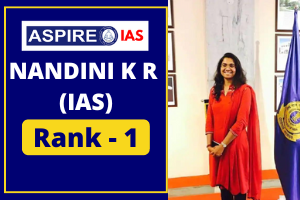
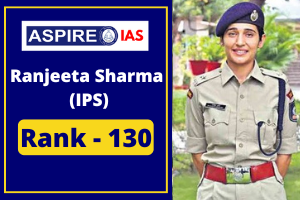
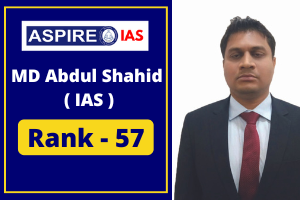
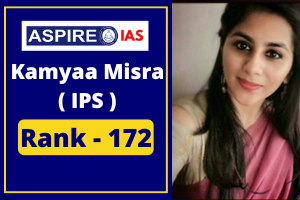

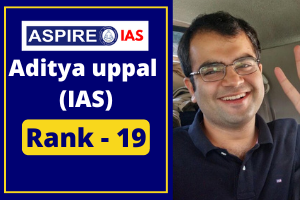
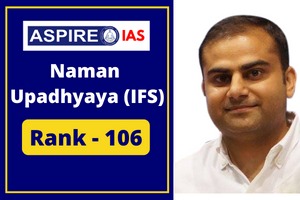
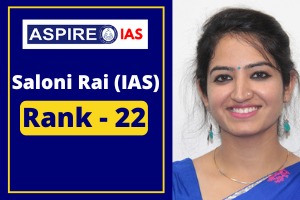










Our Popular Courses
Module wise Prelims Batches
Mains Batches
Test Series